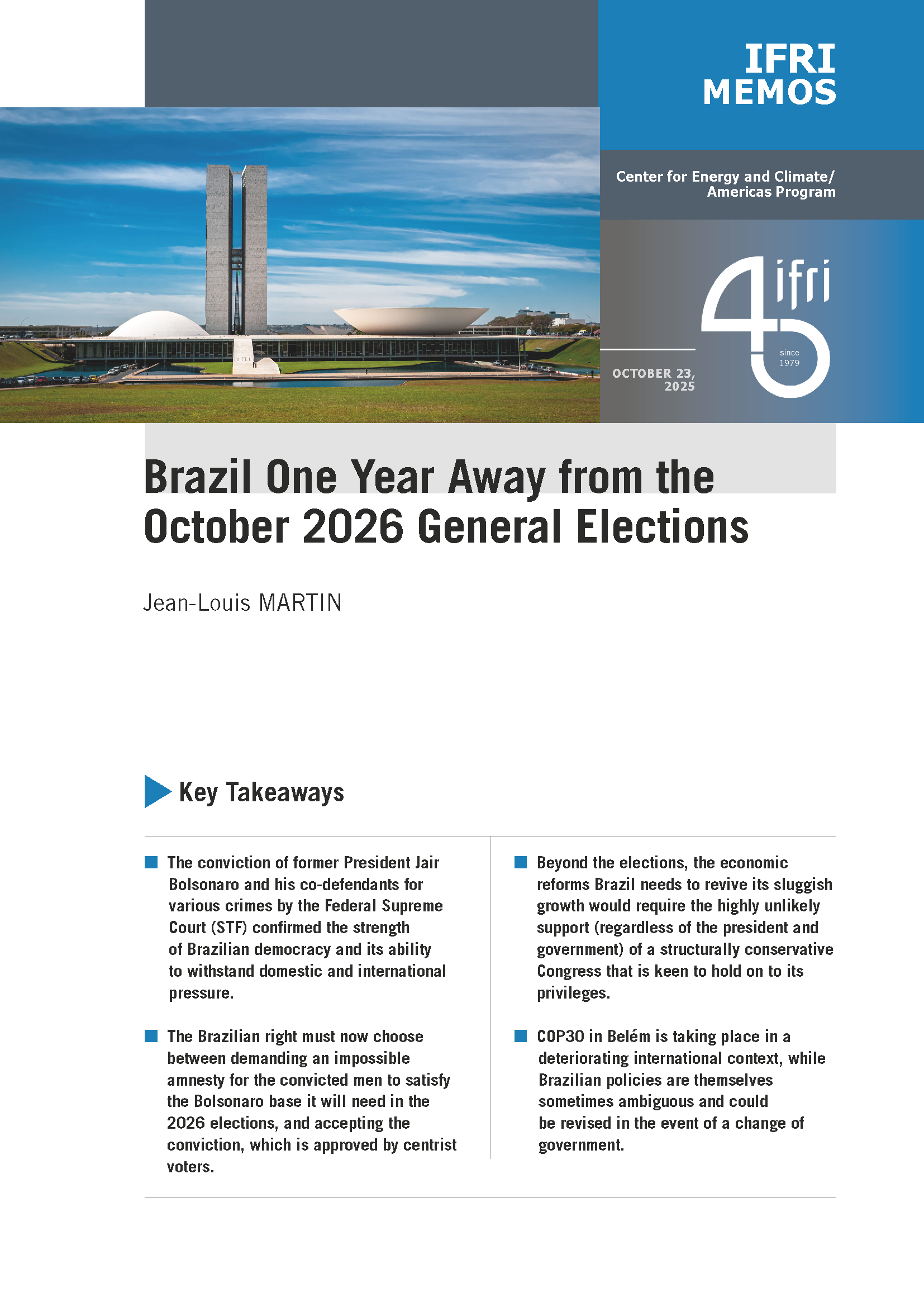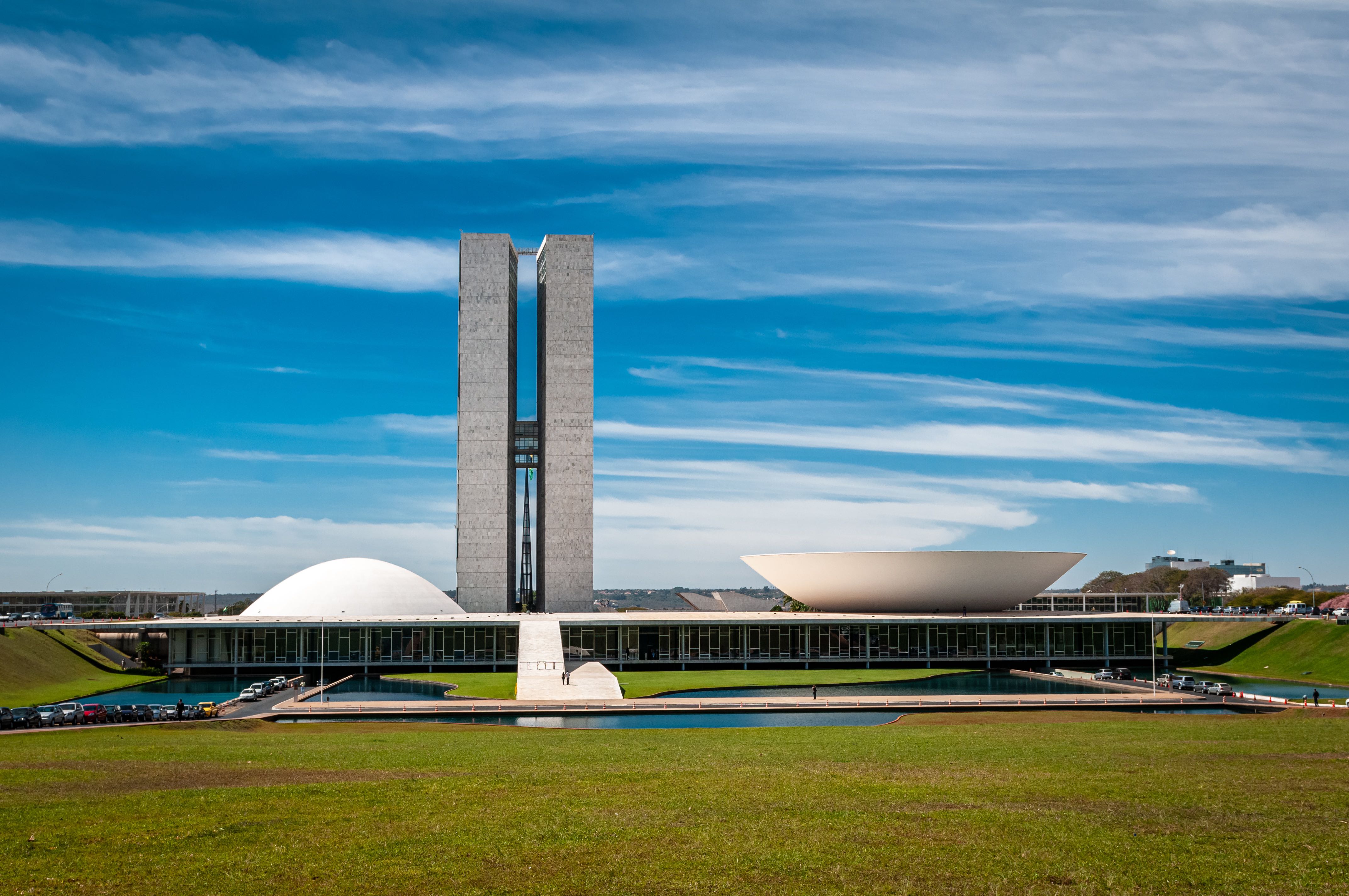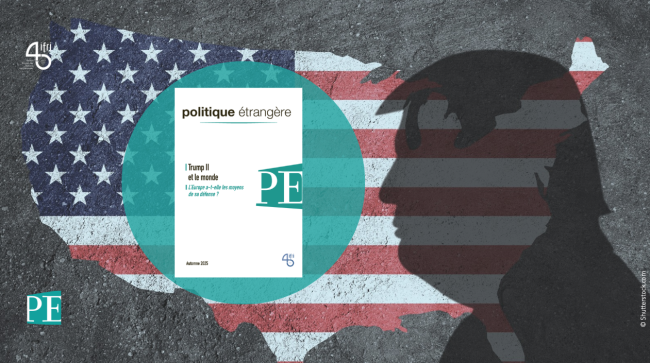Brazil One Year Away from the October 2026 General Elections

Brazil’s general elections will be held on October 4, 2026, to elect the president, vice-president, members of the National Congress, governors, deputy governors and state legislative assemblies. For the presidential and gubernatorial elections, a second round will be held on October 25 if no candidate obtains a majority of the votes in the first round.

The political context is marked by the Supreme Court’s sentencing of former President Bolsonaro to 27 years and 3 months in prison for several crimes, including an attempted coup d’état. The debate is now focused on a possible amnesty, which is dividing the Brazilian right.
Finally, the 30th Conference of the Parties (COP30) on climate change will take place from November 10 to 21, 2025, in Belém, capital of the state of Pará, in the Brazilian Amazon. It will bring together the signatory countries of the United Nations Framework Convention on Climate Change (UNFCCC).
Titre
Key Takeaways
The conviction of former President Jair Bolsonaro and his co-defendants for various crimes by the Federal Supreme Court (STF) confirmed the strength of Brazilian democracy and its ability to withstand domestic and international pressure.
The Brazilian right must now choose between demanding an impossible amnesty for the convicted men to satisfy the Bolsonaro base it will need in the 2026 elections, and accepting the conviction, which is approved by centrist voters.
Beyond the elections, the economic reforms Brazil needs to revive its sluggish growth would require the highly unlikely support (regardless of the president and government) of a structurally conservative Congress that is keen to hold on to its privileges.
COP30 in Belém is taking place in a deteriorating international context, while Brazilian policies are themselves sometimes ambiguous and could be revised in the event of a change of government.

Available in:
Themes and regions
ISBN / ISSN
Share
Download the full analysis
This page contains only a summary of our work. If you would like to have access to all the information from our research on the subject, you can download the full version in PDF format.
Brazil One Year Away from the October 2026 General Elections
Related centers and programs
Discover our other research centers and programsFind out more
Discover all our analysesTrump II: The Clash of Ideologies
The second Trump administration brings together a number of very different, even opposing, ideologies: far-right populism, the reactionary Christian right, paleolibertarianism, and technolibertarianism. The most visible measures taken since Donald Trump's return to the White House have been populist in nature, with the president's authority strengthened, checks and balances weakened, a form of identity politics embraced, and economic nationalism implemented.
Water in Mexico: an Emergency that Will Wait
Access to water is already and will become increasingly problematic for Mexican economic actors due to the progressive scarcity of the resource resulting from climate change, a geographical distribution that does not coincide with that of the population or economic activity, and management that has so far been far too lax.
Donald Trump v. the States: the Case of New York
While the disruptive policies of the second Trump administration are being implemented at the federal level and on the international stage, they are also being felt in the federal states and major cities across the country. In the spring of 2025, several cases involving the state and city of New York demonstrate that the president’s attacks on environmental protection, the separation of powers, freedom of speech, etc., are also being carried out at the local level.
How the US under Trump Became a Strategic and Ideological Adversary of Europe
The Europeans' worst security nightmare seems to be coming true: on Tuesday, February 18, 2025, U.S. Secretary of State Marco Rubio and Russian Foreign Minister Sergey Lavrov met in Saudi Arabia to initiate the normalization of relations between their two countries. The meeting also aimed to set up peace negotiations for Ukraine. However, despite having the potential to affect the entire continent, the discussions took place without the Europeans or the Ukrainians being present.













